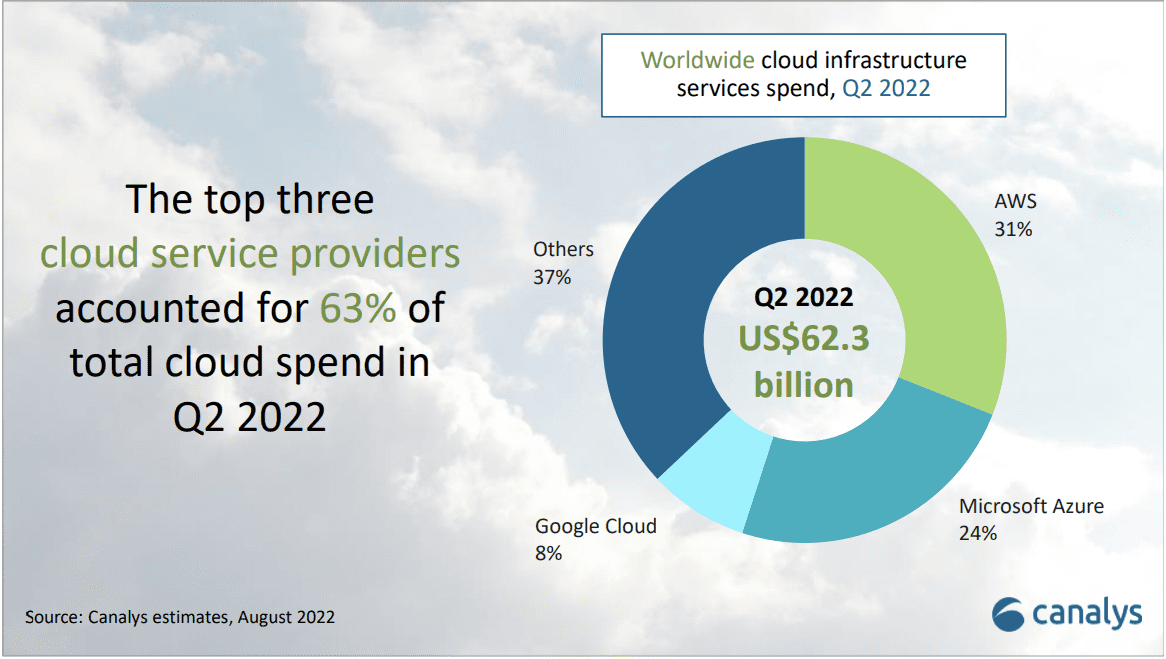The global cloud spending increased 33% year on year (YoY) to US$62.3 billion in Q2 2022, indicating continued demand for cloud infrastructure services reveals a research report by Canalys. This growth is driven by a range of factors like demand for data analytics and machine learning, data center consolidation, application migration, cloud-native development, and service delivery. The expenditure in Q2 2022 is US$6 billion more than in Q1 2022 and US$15 billion more than in Q2 2021.
The top three vendors in Q2 2022 are Amazon Web Services (AWS), Microsoft Azure, and Google Cloud, which together accounted for 63% of global spending in Q2 2022 and grew 42% collectively.

AWS was the leading cloud service provider accounting for 31% of total cloud infrastructure services spend in Q2 2022 and had an annual growth of 33%. Azure was the second largest cloud service provider with a 24% market share, growing 40% annually. Google Cloud which accounted for an 8% market share, grew 45% in the latest quarter.
The hyperscale battle between leader AWS and challenger Microsoft Azure is intensifying, with Azure gaining ground on its rival. Microsoft was part of a record number of larger multi-year deals in both the US$100 million-plus and US$1 billion-plus segments. Microsoft is giving tough competition to AWS with its diverse go-to-market ecosystem, combined with a broad portfolio and wide range of software partnerships. Microsoft revealed that revenue from Azure and other cloud services grew by 40% and the Intelligent Cloud revenue was up by 20% reaching $20.9 billion at the end of June 2022.
“Most companies have gone beyond the initial step of moving a portion of their workloads to the cloud and are looking at migrating key services,” said Canalys Research Analyst Yi Zhang. “The top cloud vendors are accelerating their partnerships with a variety of software companies to demonstrate a differentiated value proposition. Recently, Microsoft pointed to expanded services to migrate more Oracle workloads to Azure, which in turn are connected to databases running in Oracle Cloud.”
Oracle and Microsoft announced the general availability of Oracle Database Service for Microsoft Azure. This new offering will enable Microsoft Azure customers to easily provision, access, and monitor enterprise-grade Oracle Database services in Oracle Cloud Infrastructure (OCI) with a familiar experience.
Software capabilities and partnerships are vital to meet customers’ cloud demands, especially when considering the compute needs of highly specialized services across different verticals.
Image and source credits: Canalys
Read next: Uptime recommends how users can handle cloud outages








